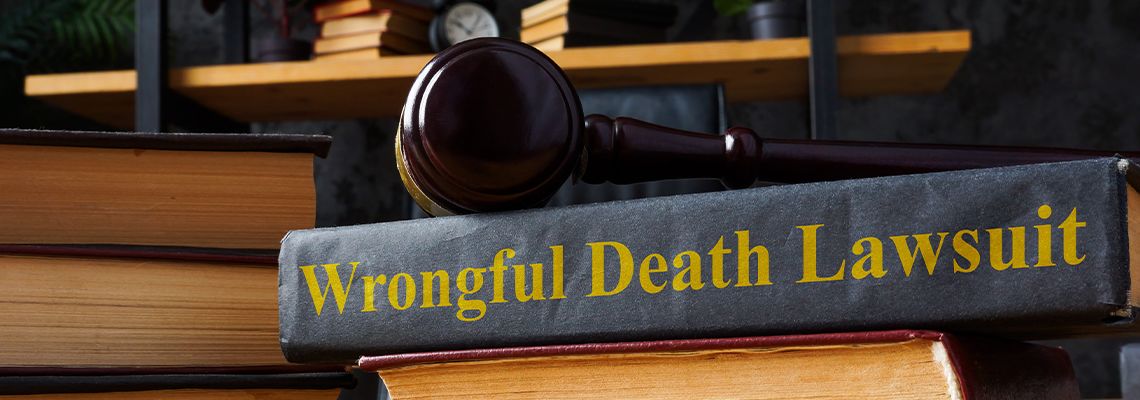The sudden loss of a loved one leaves families in Louisiana grieving and wondering how they’ll cover household bills. Wrongful death damages range from future paychecks to bedtime stories never told, and each element carries its own proof requirements within Louisiana’s civil code.

How to Determine the Value of a Wrongful Death Claim
The sudden loss of a loved one leaves families in Louisiana grieving and wondering how they’ll cover household bills. Wrongful death damages range from future paychecks to bedtime stories never told, and each element carries its own proof requirements within Louisiana’s civil code.
The Corrington Law Firm practices wrongful death litigation in New Orleans, Louisiana, and guides spouses, children, and parents through the valuation process so that compensation reflects every penny lost and every memory altered.
Family members who understand these valuation building blocks enter negotiations with confidence instead of guesswork. The Corrington Law Firm is here to explain the process step-by-step—from statutes to settlement dynamics—so you can see how lawyers, accountants, and grief counselors convert heartache into courtroom numbers that honor the life cut short.
Louisiana Statutory Rules and Filing Priority
Louisiana Civil Code articles 2315.1 and 2315.2 set strict deadlines and heir hierarchies. A one-year prescriptive period starts on the date of death, meaning evidence collection can’t wait.
Suit priority moves from spouse and children to parents, then siblings, and finally the estate. Coordinated filings prevent rival petitions that could dilute recovery or stall settlement talks.
Separate but related, a survival action seeks compensation for pain, medical bills, and lost earnings between injury and death, while the wrongful death claim covers losses after passing. Keeping the two causes distinct avoids double-counting and clarifies negotiation targets for insurers.
Quantifying Economic Losses
Economic damages supply the financial foundation of any valuation, and they’re often the easiest to document. Before numbers can be trusted, however, each component must tie directly to the decedent’s historical earnings and household role. Families gain leverage when they present a comprehensive, well-organized picture of what the deceased contributed daily.
The items below show how courts and insurance adjusters tally these tangible losses.
Lost wages and benefits: Paychecks, health coverage, bonuses, and future promotions the victim would have earned until expected retirement.
Household services value: Childcare, elder care, cooking, and lawn maintenance now requiring paid help or additional family time.
Medical expenses before death: Hospital stays, rehabilitation, and prescriptions incurred between injury and passing.
Funeral and burial costs: Reasonable charges for services, headstones, travel, and cultural rites connected to laying a loved one to rest.
Economists translate pay stubs, W-2 forms, and union contracts into present-value lump sums, adjusting for inflation, expected raises, and work-life expectancy. Including fringe benefits such as employer-paid tuition or company car allowances prevents hidden gaps.
Valuing Non-Economic Harm
While no dollar amount replaces a parent’s smile at graduation, Louisiana law lets juries compensate grief and companionship loss. Because these categories lack spreadsheets, testimony and visual evidence become critical.
One strong strategy features balanced perspectives—school photos, vacation videos, and therapist notes—to illustrate both what was and what is now missing:
Loss of consortium: Comfort, affection, and shared future plans stripped from a spouse or partner.
Loss of guidance: Mentorship, life lessons, and daily encouragement a child relied on.
Emotional distress: Sleepless nights, anxiety attacks, and depression triggered by the tragedy.
Loss of enjoyment of life: Trips cancelled and hobbies abandoned due to unrelenting sorrow.
Courts weigh how relationships functioned before the event, so collecting letters, texts, and third-party observations helps prove depth of connection. Emotional-care providers can quantify therapy frequency and prognosis, strengthening the claim’s credibility.
Assessing Survival Action Damages
If the victim survived hours, days, or weeks before passing, the estate may recover additional compensation for conscious pain and lost earnings during that interval.
Medical records, nursing notes, and family witness statements prove awareness and suffering level, while paycheck data captures interim income shortfalls. Keeping survival damages separate from wrongful death calculations shows respect for statutory distinctions and smooths insurer reviews.
Courts also consider the severity and duration of pain, emotional distress, and the victim’s awareness of impending death. Even short periods of suffering can result in significant awards if supported by clear, compelling evidence. Emergency room notes, videos, or last conversations may strongly influence jury perception.
Considering Punitive Possibilities
Louisiana usually limits punitive or exemplary awards, reserving them for egregious misconduct such as drunk-driving fatalities or reckless hazardous-material spills. A successful punitive claim hinges on proving the defendant’s blatant disregard for safety—often through prior violations, high blood-alcohol content, or ignored safety recalls.
These sums punish rather than compensate, yet they still factor into overall claim value because they influence settlement posture.
Evaluating Insurance Coverage and Defendant Assets
No matter how well damages are proven, actual recovery depends on available funds. A quick asset and policy investigation avoids unpleasant surprises after a verdict.
Commercial-general-liability, auto, umbrella, and homeowner policies may all contribute. Identifying additional defendants—employers, product manufacturers, or bar owners in dram-shop cases—widens the financial pool and boosts settlement odds.
Judgment collection prospects also affect value. An individual defendant with minimal assets may drive the claim toward policy limits, while a publicly traded corporation could warrant aggressive pursuit of full economic and non-economic totals.
How Expert Testimony Affects Valuation
Jurors expect numbers grounded in recognized methodology, not guesses. Three expert categories dominate Louisiana wrongful death trials:
Economists translate past earnings and future projections into one present-value figure.
Vocational specialists explain likely career paths, promotions, and wage trajectories.
Mental-health professionals document family grief severity and treatment needs.
Coordination among these experts prevents overlap. For example, the economist uses vocational projections to calculate lost wages, while the counselor supplies therapy-cost estimates the economist folds into economic damages. Unified reports impress juries and frustrate defense attempts to exploit discrepancies.
Evidence Collection and Documentation Checklist
A complete valuation file blends receipts, narratives, and professional assessments. Building it early lets lawyers answer adjuster questions quickly, pressuring insurers to pay appropriate amounts.
Documents you’ll need to prepare include the following:
Financial foundation documents: Tax returns, pay stubs, union scales, and 401(k) statements establishing earning history.
Household service logs: Calendars and app screenshots showing childcare pickups, grocery runs, and elder appointments the victim handled.
Medical and funeral invoices: Itemized bills that convert abstract care into exact dollars.
Personal impact exhibits: Family videos, journal entries, and school awards highlighting relationships and lost guidance.
Expert reports: Written opinions from economists, therapists, and vocational analysts with clear methodologies.
Collecting these materials in digital and hard-copy form guards against tech glitches and last-minute courthouse scrambling.
Settlement Dynamics and Negotiation Leverage
Valuation isn’t just mathematics; it’s also timing and leverage. Presenting a polished demand with supporting exhibits often prompts insurers to request mediation. Before mediation begins, outline walk-away numbers and rank priorities—some families prefer quick cash for mortgage stability, while others seek public accountability even if litigation drags.
Throughout talks, control emotions and keep references to personal grief within evidentiary context. Doing so projects credibility and counters defense stereotypes that families chase money rather than justice. When mediation stalls, filing suit can restart discussions by revealing the plaintiff’s readiness for trial and exposing defense weaknesses during discovery.
Speak to a Wrongful Death Lawyer Today
A well-valued wrongful death claim safeguards your family’s future while honoring the life lost. The Corrington Law Firm represents clients throughout Orleans Parish, Jefferson Parish, East Baton Rouge Parish, St. Tammany Parish, Lafayette Parish, Caddo Parish, Calcasieu Parish, and Ouachita Parish in Louisiana. Call now to discuss a tailored strategy that captures every recoverable loss and helps you focus on healing.
RECENT POSTS
Losing a loved one to someone else’s negligence leaves families grieving and facing new bills all at once. Because Louisiana’s civil code limits who may sue and which losses qualify, early legal guidance keeps cases focused on damages the court can actually award.


